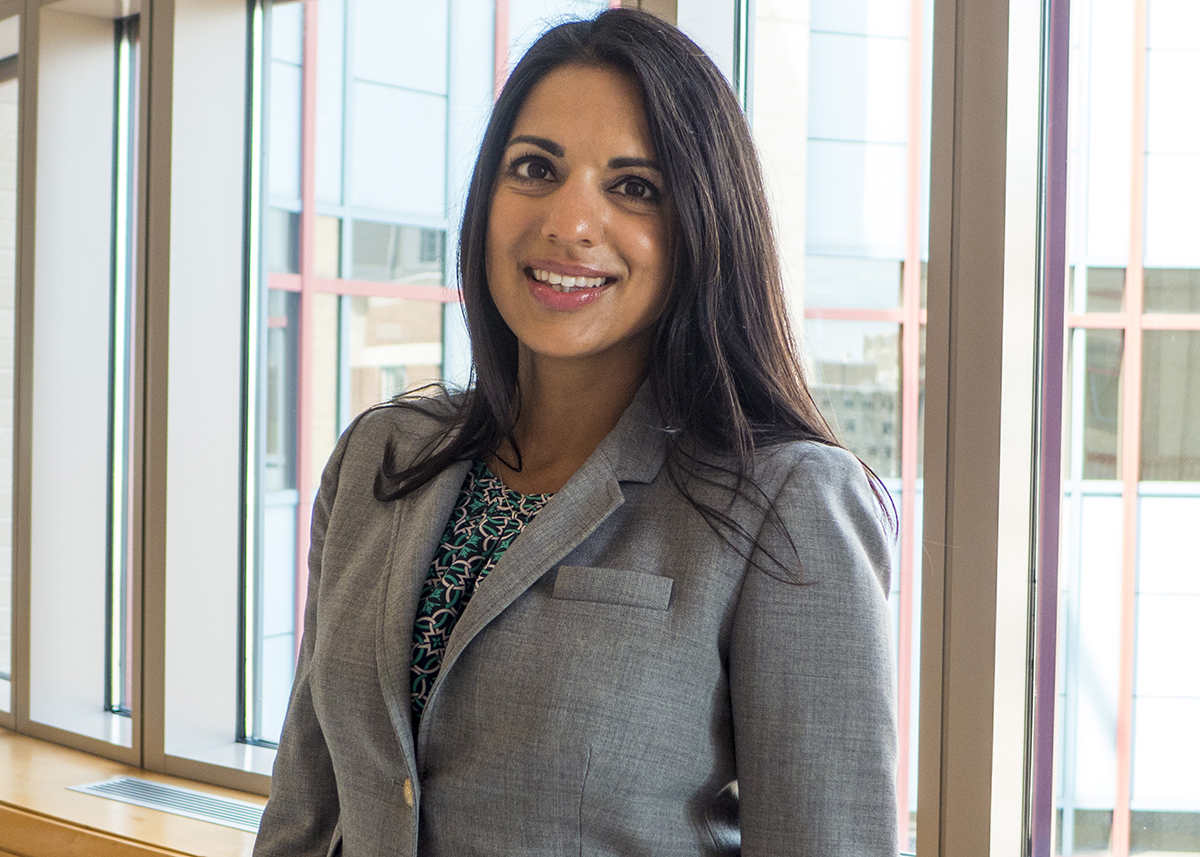Ask the Expert: Should I Get Genetic Testing?
Welcome to our Ask the Expert series, in which our panel of health experts answers your wellness questions. Here, Tufts Medical Center’s Prianka Chawla breaks down genetic testing. Got a question of your own? Email jducharme@bostonmagazine.com.

Photo via istock.com/gevende
Question:
I’m terrified of inheriting a genetic condition such as Alzheimer’s or breast cancer, but am also hesitant to get tested to see if I have genetic risk factors. What would you advise?—Anonymous, Boston
Answer:
“If there is no family history,” Chawla says, “there is very little reason for testing for any of these diseases.”
If you do have a family history of Alzheimer’s, certain cancers, or other heritable diseases, however, the decision becomes far more complicated—and personal.
Genetic testing aims to identify abnormalities in your DNA, which may suggest a heightened risk of developing or passing on certain conditions. While a negative test result can “give some reassurance,” a positive one can unearth upsetting news—so Chawla says patients should always consult a genetic counselor or medical geneticist, and think long and hard about the benefits of knowing.
“What is the reason for wanting that information, and what are we going to do with it?” Chawla asks. “Information is power, but a lot of information can actually cause more anxiety and harm if there’s no action plan associated with it.”
Sometimes, the action plan that follows a genetic test is clear. If breast cancer runs in your family, maybe you know you’d want a preventative mastectomy if you tested positive for predictive genes. Maybe knowing you’re predisposed to developing ovarian or colon cancer would prompt you to start screening tests earlier, or to schedule them more frequently. Maybe you’d simply start living a healthier lifestyle.
Sometimes, the action plan has nothing to do with medicine. Knowing you’re at risk for Alzheimer’s, for example, might inspire you to get your finances, insurance, or family plan in order. Whatever the case may be, Chawla says the important thing is to have some idea of what you’d do with your newfound knowledge, regardless of what your plan actually looks like.
It’s also important to keep in mind that tests aren’t the end-all, be-all, she adds.
“Positive testing does not mean [certain] development of a disease,” she says. On the flip side, “Even in a family where there’s high-risk, gene-associated cancer, if someone were to test negative for that gene, they still could develop a cancer based on the general population risk of developing cancer. Or something could have been missed—our tests are not perfect.”
And if lab tests aren’t perfect, the increasingly popular at-home, straight-to-consumer tests certainly aren’t. “I would feel very uncomfortable, as someone at home, obtaining all that information without any guidance about the accuracy and what to do with that information,” Chawla cautions. “You’re better off focusing on healthy lifestyle.”
To make a long story short, this question is complicated; there’s no one-size-fits-all answer.
“This is a very personal decision,” Chawla says, “and a decision that really needs to be made with counseling, and psychological care, and emotional care, and family discussion.”
 About the Expert: Prianka Chawla is a practicing physician and assistant professor at Tufts Medical Center, within the Division of Internal Medicine and Adult Primary Care. She treats patients with diverse needs, including chronic disease prevention and management, weight maintenance, and mental health issues. She’s also part of in-hospital patient service and is heavily involved in teaching medical students and residents.
About the Expert: Prianka Chawla is a practicing physician and assistant professor at Tufts Medical Center, within the Division of Internal Medicine and Adult Primary Care. She treats patients with diverse needs, including chronic disease prevention and management, weight maintenance, and mental health issues. She’s also part of in-hospital patient service and is heavily involved in teaching medical students and residents.
Dr. Chawla received her B.A. in neuroscience from Wellesley College and her M.D. from Drexel University College of Medicine. She returned to Boston, her hometown, to complete her residency at Tufts Medical Center. She loves traveling, New England sports teams, exercise classes ranging from barre to boxing, and creating healthy meals with her husband and dog.
Got a question for our experts? Email jducharme@bostonmagazine.com.


